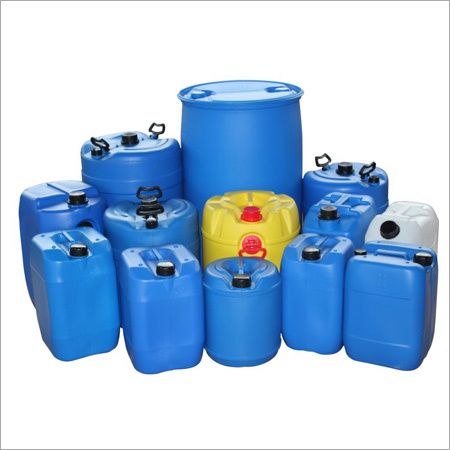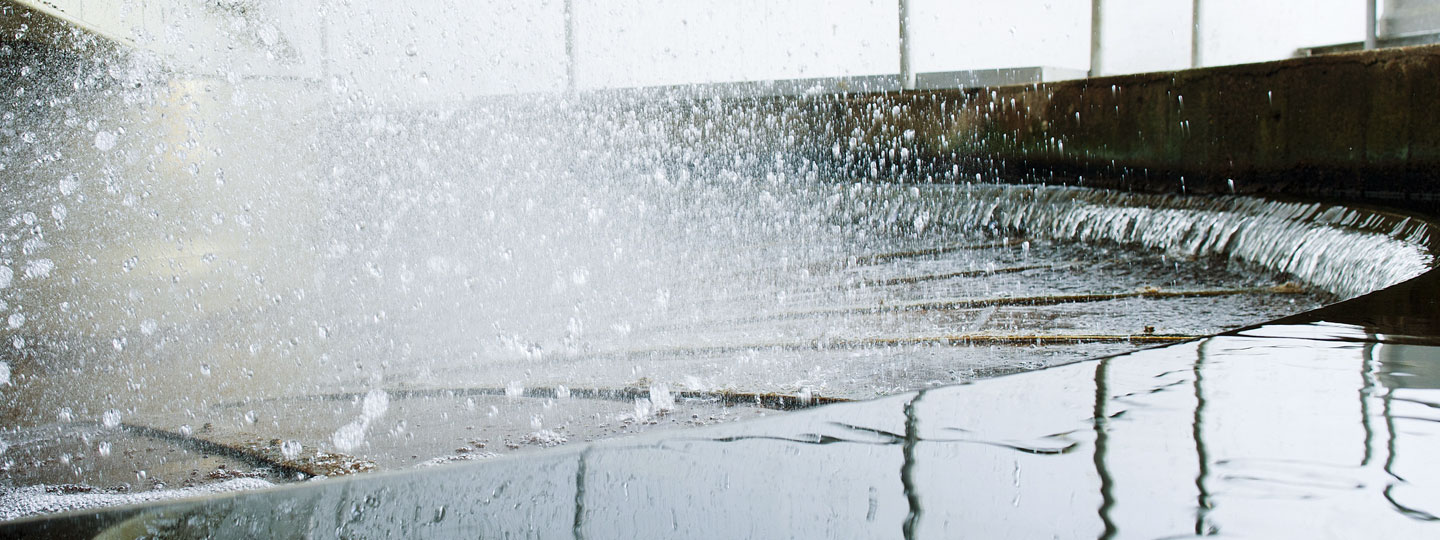What to Try to find When Picking Water Therapy Chemicals for Optimum Performance
When selecting water therapy chemicals, it's essential to comprehend your certain demands and the contaminants existing in your water. You'll wish to examine the effectiveness of potential chemicals, guaranteeing they work well with your existing systems. Don't ignore security criteria and regulative compliance, as they can considerably impact your operations. Just how do you balance these factors with cost-effectiveness and provider reliability? Allow's discover these factors to consider additionally.
Recognizing Your Water Therapy Demands
When you're reviewing your water treatment requires, it's necessary to determine the certain issues affecting your water supply. Start by testing your water for contaminants like microorganisms, hefty steels, and chemicals.
Next, assume about the source of your water-- whether it's from a well, a community supply, or a different source. Each has distinctive challenges that call for tailored solutions. Additionally, consider your house's water usage and any kind of details health issues your household may have. By understanding these elements, you can guarantee that you pick the right chemicals and therapy methods to successfully address your unique demands, causing safe and clean water for your home.

Examining Chemical Efficiency
To guarantee the chemicals you choose are effective, you require to review their efficiency against your specific water treatment goals. Look for independent test results or certifications that demonstrate the chemical's efficacy in real-world applications.
Following, take into consideration the chemical's price of activity and the moment it takes to achieve desired results. water treatment chemicals kingwood texas. Evaluating the chemical in a controlled atmosphere, preferably, can also aid you evaluate its efficiency
Do not forget to assess any type of potential adverse effects or ecological effects that could develop from making use of the chemicals. By completely reviewing these elements, you can make informed choices that line up with your water therapy purposes, making certain perfect performance and safety for your system.
Making Sure Compatibility With Existing Equipment
When selecting water therapy chemicals, you need to examine exactly how well they'll collaborate with your existing systems. It's vital to evaluate potential chemical communications to avoid any type of negative results. By guaranteeing compatibility, you can improve system efficiency and preserve water high quality properly.
System Compatibility Evaluation
Safeguarding compatibility with existing systems is critical for effective water treatment, as poorly picked chemicals can cause equipment damage and lowered efficiency - water treatment chemicals kingwood texas. Start by evaluating your system's materials, such as pumps, tanks, and pipelines, to determine any kind of prospective communications with the chemicals you're considering. Look for any producer suggestions to make particular you're not going against guidelines or guarantees. Additionally, assess the pH levels and temperature level limitations of your system, as these elements can influence chemical performance. It's likewise useful to consult with your chemical vendor for guidance on compatibility. By taking these actions, you'll help ensure that the chemicals you select will certainly function harmoniously with your existing arrangement, optimizing efficiency and safeguarding your financial investment.
Chemical Interaction Evaluation
Given that comprehending chemical interactions is critical for keeping system stability, it's vital to analyze exactly how the chemicals you plan to make use of will connect with those currently present in your water therapy system. Beginning by examining the chemical composition of your existing treatments. Always consult safety and security information sheets and engage with chemical suppliers for insights on compatibility.

Assessing Safety and Handling Demands
When picking water therapy chemicals, you require to focus on security and handling demands. Ensure you comprehend the regulatory conformity standards, make use of the ideal personal safety tools, and follow proper storage and disposal guidelines. This assures not only your safety but additionally the setting's wellness.
Regulative Compliance Criteria
Comprehending regulatory compliance criteria is crucial for any individual involved in water treatment, as these standards determine the safety and handling requirements for chemicals utilized in the procedure. Compliance guarantees that the chemicals you select not only satisfy safety and security needs yet likewise minimize environmental impact. By focusing on compliance, you protect yourself, your group, and the atmosphere while preserving the effectiveness of your water treatment operations.
Personal Safety Equipment
Assuring security in water treatment procedures exceeds simply following regulative conformity; it likewise involves choosing the right individual protective devices (PPE) You need to examine the details chemicals you'll be dealing with and pick PPE that shields against their threats. This could include gloves, goggles, deal with guards, and respirators, depending upon hop over to here the compounds involved. Always check the Product Safety Data Sheets (MSDS) for each chemical to understand the required PPE demands. When working with corrosive or hazardous chemicals, do not take shortcuts-- spend in top browse around this web-site notch devices that fits well and fits to wear. Regularly check your PPE for deterioration, and change it as needed to guarantee maximum security throughout your water treatment operations.

Storage and Disposal Standards
Appropriate storage space and disposal of water therapy chemicals is essential for keeping security and conformity. Always shop chemicals in their initial containers, securely sealed, and in a great, completely dry place away from straight sunshine. Validate that you label all containers plainly to avoid complication.
When handling chemicals, use suitable individual safety equipment, like safety glasses and gloves. Be aware of any specific storage instructions or temperature level needs.
Never put chemicals down the drainpipe or mix different substances, as this can create unsafe reactions. Rather, make use of assigned disposal centers or waste collection solutions.
Reviewing Governing Conformity Requirements
While assessing water treatment chemicals, you need to be aware of the regulatory compliance requirements that govern their use. These criteria guarantee that the chemicals you pick meet safety and security, health and wellness, and environmental requirements. Familiarize yourself with local, state, and federal regulations, such as the Epa (EPA) guidelines in the United States.
You ought to additionally look for any kind of industry-specific criteria that may use to your operations, like those from the American Water Functions Association (AWWA) or the National Sanitation Structure (NSF)
It's vital to verify that the chemicals you pick are accepted for the desired application, particularly if they'll influence drinking water top quality. Non-compliance can result in major lawful repercussions and adversely effect public health.
Taking Into Consideration Cost-effectiveness and Spending Plan Restraints
When you're picking water treatment chemicals, it's essential to weigh cost-effectiveness together with your spending plan restrictions. Start by reviewing the total prices, including not just the purchase cost but also delivery, handling, and disposal charges. Analyze just how these chemicals will influence your functional expenses in time.
Think about the efficiency of each chemical; some may have a higher ahead of time expense however use better efficiency and reduced lasting expenditures. Seek products that call for reduced dosages or much less regular application, as these can save you money in the future.

Don't forget to consider potential cost savings from enhanced water quality and compliance with guidelines, which can stop pricey penalties. Engage with your group to establish which options align with your monetary objectives while still meeting your therapy requires. Striking the right equilibrium can cause effective services without breaking the financial institution.
Examining Distributor Credibility and Support Services
Picking the appropriate supplier for your water therapy chemicals is essential, as their track record and support solutions can significantly affect your operations. Beginning by looking into potential vendors-- seek evaluations and testimonials that highlight their integrity and quality. A strong track record usually shows a dedication to consumer contentment and item effectiveness.
Next, assess the assistance solutions they use. Do they provide technical help, training, and timely responses to inquiries? A supplier that stands by their items and wants to aid you repair issues can save you time and money in the future.
Finally, consider their experience in the sector. An established vendor with a proven performance history is more probable to understand your certain needs and use customized solutions. By thoroughly assessing these aspects, you'll find a companion that not only fulfills your chemical requires yet also supports your general functional objectives.
Often Asked Concerns
Just how Do I Determine the Right Dose for Chemicals?
To determine the appropriate dose for chemicals, you must examine water top quality, follow producer guidelines, and do normal screening. Change your dose based upon outcomes, guaranteeing you keep ideal therapy performance and water safety and security.
Can Water Treatment Chemicals Affect My Water Preference or Smell?
Yes, water treatment chemicals can impact your water's preference and smell. If you discover any modifications, it is vital to assess the chemicals used and change dosages or button to choices for far better outcomes.
What Are the Typical Indications of Chemical Conflict?
You'll observe indications of chemical incompatibility through unforeseen color changes, debris development, or unusual helpful hints smells. It's important to reassess your chemical options to ensure efficient and risk-free water therapy. if you see these issues.
Exactly how Frequently Should I Check Water After Chemical Therapy?
You must test your water frequently after chemical treatment, preferably within 24 hr, then once a week for the very first month. After that, regular monthly testing aids assure recurring security and performance of your water treatment system.
What Environmental Impacts Should I Think About With Chemical Use?
When making use of chemicals, consider their results on regional communities, water top quality, and air contamination. water treatment chemicals kingwood texas. You need to additionally assess potential runoff and the long-term sustainability of your water treatment techniques to lessen environmental harm
Conclusion
In summary, picking the right water therapy chemicals is necessary for peak efficiency. By comprehending your specific needs and assessing variables like efficiency, compatibility, security, and prices, you can make informed decisions. Don't fail to remember to check the provider's credibility and guarantee conformity with guidelines. By balancing efficiency with sustainability, you'll not just address your treatment obstacles yet also add to a much healthier setting. Make the effort to pick intelligently for the very best cause your water treatment efforts.
When choosing water treatment chemicals, it's necessary to understand your certain demands and the impurities present in your water supply.Given that understanding chemical communications is crucial for keeping system integrity, it's essential to examine how the chemicals you intend to use will connect with those already existing in your water treatment system.When picking water therapy chemicals, you require to focus on safety and handling needs.Comprehending governing compliance criteria is vital for any individual involved in water treatment, as these standards determine the security and handling demands for chemicals utilized in the process. Can Water Therapy Chemicals Affect My Water Taste or Odor?
 Kel Mitchell Then & Now!
Kel Mitchell Then & Now! Judd Nelson Then & Now!
Judd Nelson Then & Now! Joshua Jackson Then & Now!
Joshua Jackson Then & Now! Michael Fishman Then & Now!
Michael Fishman Then & Now! Dawn Wells Then & Now!
Dawn Wells Then & Now!